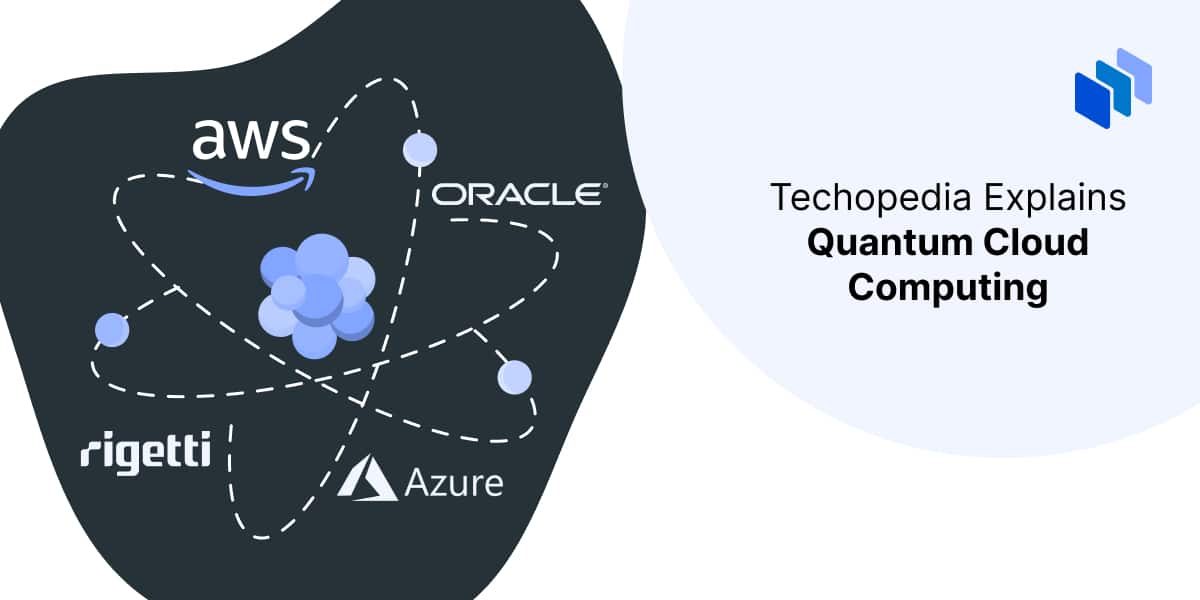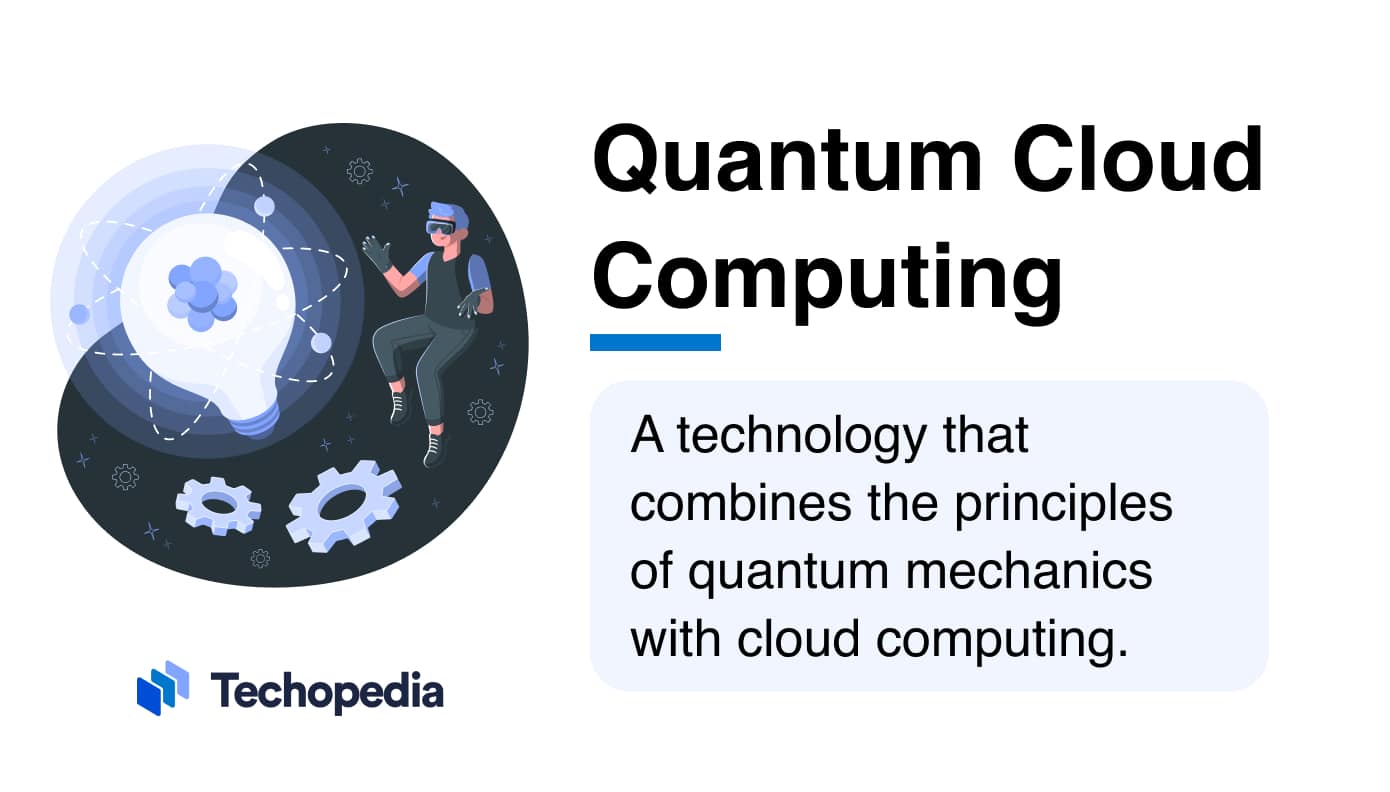What is Quantum Cloud Computing?
Quantum cloud computing is a technology that combines the principles of quantum mechanics with cloud computing. It allows users to access and use quantum computing power over the Internet, without the need for direct physical access to a quantum computer.
This is major because quantum computers, with their advanced capabilities, are not only extremely expensive but also require specialized environments to operate.
The fundamental difference between quantum cloud computing and traditional cloud computing lies in the computing resources provided.
Traditional cloud computing leverages classical computers to perform calculations, store data, and run applications through virtual machines or cloud-based services. These classical computers use bits as the basic unit of information, which can be either a 0 or a 1 at any given time, following the binary system.
Quantum cloud computing, however, utilizes quantum bits, or qubits. Unlike classical bits, qubits can represent and process multiple states simultaneously thanks to two key principles of quantum mechanics: superposition and entanglement.
Superposition allows a qubit to be in a state of 0, 1, or both at the same time, increasing the computational power. Entanglement, another quantum phenomenon, allows qubits that are entangled to be in a correlated state, meaning the state of one (whether it’s 0 or 1) can depend on the state of another, even over long distances.
This capability allows quantum computers to solve certain types of complex problems much more efficiently than classical computers.
Techopedia Explains the Quantum Cloud Computing Meaning
The simplified definition of quantum cloud computing is a technology that blends the capabilities of quantum computing with the widespread accessibility of cloud technology.
Quantum cloud computing operates using qubits that have the ability to be in a state of 0, 1, or both at the same time, thanks to superposition. Another principle, entanglement, allows qubits to be interconnected in a way that the state of one can instantly affect another, regardless of distance.
Key Terminology and Concepts in Quantum Cloud Computing
Quantum cloud computing can sound intimidating, so understanding a few of the key terminology and concepts before diving in can be helpful.
How Quantum Cloud Computing Works
Quantum computing operates on qubits, which, unlike classical bits that are strictly 0 or 1, can simultaneously exist in multiple states due to superposition. This feature, combined with entanglement – where the state of one qubit can instantly influence another regardless of distance – allows quantum computers to process many possibilities at the same time, allowing for more efficient complex calculations than classical computing.
Quantum computing algorithms, such as Shor’s algorithm for factoring large numbers and Grover’s algorithm for searching through unsorted databases, leverage these quantum properties to solve problems much faster than classical algorithms.
Quantum cloud computing takes these powerful capabilities and makes them available over the Internet. Here’s how that works:
The physical quantum computers, equipped with qubits, are maintained in specialized facilities. These processors perform the quantum computations, leveraging superposition and entanglement to execute quantum algorithms.
Users access quantum computational resources through cloud platforms, which act as intermediaries between the user and the quantum processor. Users can submit their quantum algorithms via a web interface or API, without needing direct access to the quantum hardware.
Given the sensitive nature of data and the potential power of quantum computing, security is very important. Cloud platforms implement strong encryption methods to secure data in transit and at rest. Also, as quantum computing advances, it’s also paving the way for quantum cryptography, promising even more secure communication protocols.
Quantum Cloud Computing vs. Cloud Computing
Quantum cloud computing and traditional cloud computing are fundamentally different in their underlying technology and capabilities.
Here’s a table highlighting the side-by-side differences.
| Feature | Quantum Cloud Computing | Traditional Cloud Computing |
| Technology Basis | Uses qubits capable of existing in multiple states simultaneously (0, 1, or both). | Based on classical bits that are either 0 or 1. |
| Computational Speed | Can perform certain calculations much faster due to quantum algorithms. | Processes information linearly, which can be slower for complex calculations. |
| Security | Offers advanced security through quantum cryptography, potentially unbreakable. | Relies on classical encryption methods, robust but not quantum-secure. |
| Capabilities | Suited for complex problems in cryptography, material science, etc., beyond classical capabilities. | Handles a wide range of computing needs, but is limited by classical computation limits. |
| Accessibility | Currently limited access, focused on specific research and industry applications. | Widely accessible and used across various sectors. |
| Error Rates | Higher error rates due to quantum decoherence and technical challenges. | Lower error rates, with established error correction techniques. |
| Technical Complexity | Requires specialized knowledge for algorithm development and hardware maintenance. | More accessible to the general tech workforce with familiar technologies. |
Quantum Cloud Computing Use Cases
Quantum Cloud Computing Pros and Cons
Quantum cloud computing offers an impressive approach to processing data. It has some obvious advantages, but it also comes with some challenges that need addressing.
Pros
- Speed
- Security enhancements
- Solving complex problems
Cons
- Hardware limitations
- Error rates
- Accessibility
Ethical Implications of Quantum Cloud Computing
At some point, the automation and optimization capabilities of quantum cloud computing may lead to job displacement in fields reliant on conventional data processing, while at the same time creating demand for quantum computing expertise.
This shift will require targeted education and training programs to prepare the workforce for new roles and mitigate the skills gap.
The operation of quantum computers also requires a lot of energy, especially for cooling systems, to maintain near absolute zero temperatures. The environmental impact of scaling quantum cloud computing services includes increased energy consumption and potential contributions to carbon emissions.
Developing more energy-efficient quantum computing technologies and strategies to minimize environmental footprint is needed for sustainable growth.
Preparing For the Future of Quantum Cloud Computing
As a general prediction, to better prepare for the future that will be the quantum cloud computing era, it is anticipated that technological progress will prioritize enhancing qubit stability, reducing error rates, and developing more effective quantum algorithms.These improvements will make quantum computing more accessible, offering solutions to complex problems beyond our current capabilities.
To be prepared, businesses and individuals must prepare by understanding its potential impacts and integrating quantum-ready technologies. This includes adopting quantum-resistant encryption and focusing on education in quantum computing principles.
At the same time, policymakers need to develop regulations that ensure data privacy and security.
The Bottom Line
Quantum cloud computing is set to change traditional computing by offering fast processing speeds and enhanced security through quantum mechanics.
Its impact across various sectors, from healthcare to cybersecurity, promises to solve complex problems that were previously out of reach.
However, we need to consider the challenges it poses, like specialized knowledge requirements and the considerations around job displacement and environmental issues.
The combined effort of policymakers, researchers, and engineers can really change the world in which we currently live.
FAQs
What is cloud quantum computing in simple terms?
Does AWS have quantum computers?
Does Azure have quantum computing?
What are the requirements for a quantum cloud?
References
- Noisy intermediate-scale quantum era (Wikipedia)
- List of quantum processors (Wikipedia)
- Amazon Braket (Amazon)
- Azure Quantum cloud service (Microsoft)







